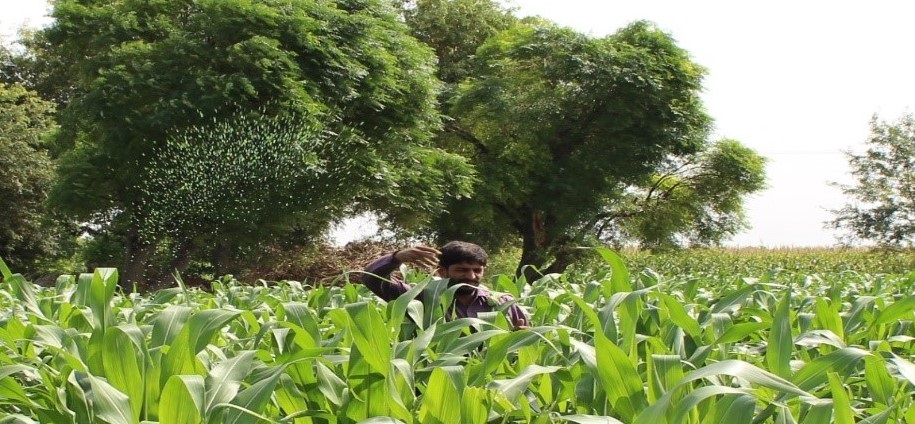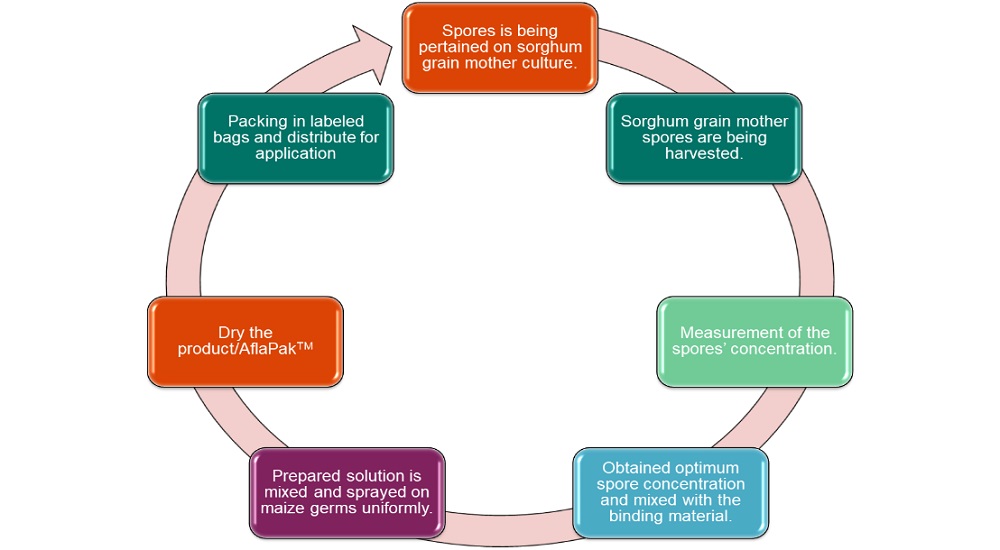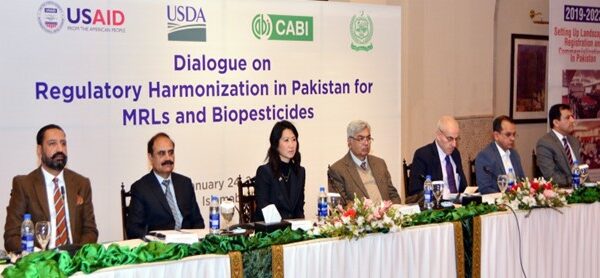
In Pakistan maize crop of the spring season is more likely to be contaminated with the exposure of aflatoxin due to the favourable conditions; temperature (75.2-109 °F) and of relative humidity (62-99%) during the crop life cycle. To minimize the level of aflatoxin each country/region has its own version of non-toxigenic strains growing naturally in soils. In Pakistani non-toxigenic strains are named as AflaPakTM .
AflaPakTM is a biological control agent/product for displacing the strains of aflatoxin producing Aspergillus flavus. The active ingredient in AflaPakTM is a naturally occurring, nontoxigenic strain of A. flavus. The primary mode of action is by competition of the nontoxigenic strain of A. flavus with the toxigenic strains of A. flavus, which displaces aflatoxin producing fungi in treated crops. Currently, the AflaPakTM trial is being conducted on maize crop in Punjab. The objective of these field trials is to evaluate the efficacy of AflaPakTM in the field and its commercialization in Pakistan.
To develop the AflaPakTM multiple steps are being undertaken at the Aflatoxin Biocontrol Laboratory at the Crop Diseases Research Institute within the National Agricultural Research Centre (NARC) in Islamabad, as well as at Rafhan Maize Products Co. Ltd in Jaranwala and Faisalabad.

The recommended dose of AflaPakTM is @ 04-05Kg per acre between growth stages V10-V12 and R1 (this is a period from about 14 days before tasseling with 10-12 visible leaf collars present until the onset of active silking) by using broadcast application equipment once in a crop season. This will help the farmers to grow safer and healthy food for their communities.
Additional information
Aflatoxin Control Programme
Find out more about CABI’s work on aflatoxin control in Pakistan.
Author:
Dr Sabyan Faris Honey – Project Manager
Contributors:
Dr Hamza Shahbaz Bhatti
Dr Muzzamil Farooq
Mr Saqib Ali
For more information, please contact:
Deborah Hamilton
USDA
202-720-0335
Deborah.Hamilton2@usda.gov
1 Comment
Leave a Reply
Related News & Blogs
Sindh farmer gains global recognition for sustainable cotton farming innovations
Photo credit: Evronas/Better Cotton. Location: Better Cotton Conference, Istanbul, Türkiye, 2024. Sindh farmer Fateh Muhammad Laghari has gained recognition for his commitment to sustainable cotton farming practices as part of the Better Cotton Member…
5 December 2024





[…] (NARC), the Pakistan Agricultural Research Council (PARC) and Rafhan Maize Products Co. Ltd, to tackle the issue of harmful Aflatoxins in maize through the biocontrol product locally termed as AflaPakTM […]